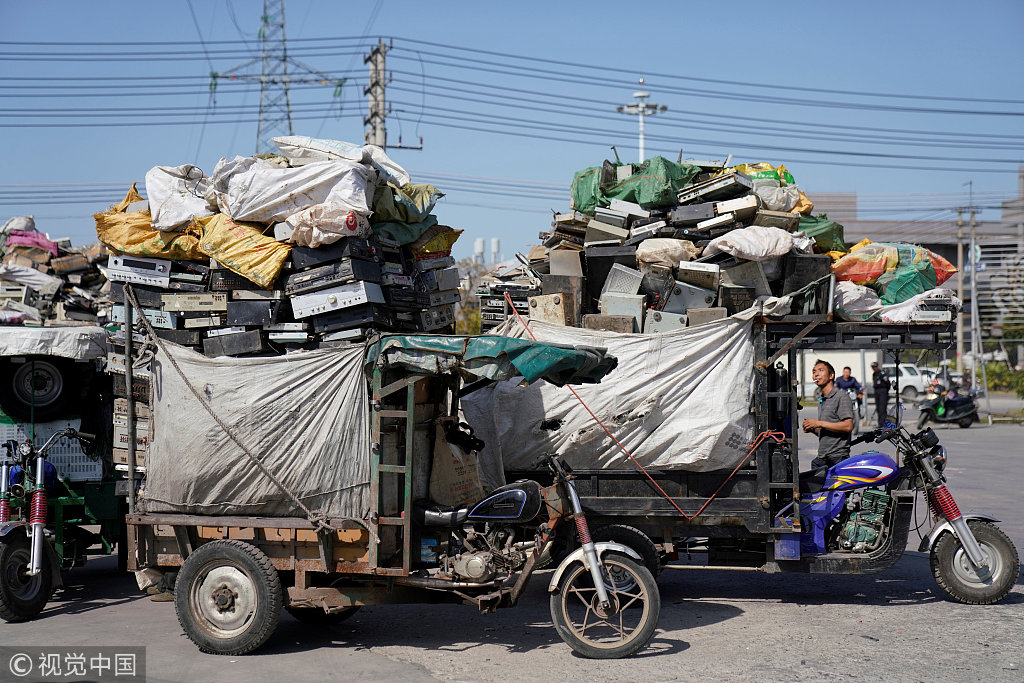California feeling effects of China's waste ban
By Lia Zhu in San Francisco | China Daily USA | Updated: 2018-06-04 15:59

Local authorities in California are thinking hard how to cut down on the amount of junk their residents throw away, as China's waste import ban is starting to have an impact on the state's economy and environmental goals.
Local governments and the recycling industry are taking steps to encourage waste prevention, reduce contamination of recyclable materials, and improve post-collection processing, all in response to China's National Sword policy, according to the California Department of Resources Recycling and Recovery (CalRecycle).
Some cities are hiring more workers at material recovery facilities and slowing down sorting lines to ensure contaminated material is diverted before recyclables are baled for export.
San Jose is exploring methods to encourage residences and businesses to produce less waste. Mid-Valley Disposal, a hauler in the Central Valley, is altering its educational flyers to be more specific as to what materials can be placed in recycling containers to combat contamination.
San Francisco-based waste management company Recology has recently upgraded the facility for sorting and cleaning recyclable commodities and plans to invest $3 million in new sorting technology this year, said Recology spokesman Robert Reed.
"National Sword is not just a local issue; it is a global one. We are asking customers to be more attentive to sorting," said Reed.
San Francisco has been working with Recology to ensure pure recycle streams, which means their recycled commodities are competitive for alternative markets, said Charles Sheehan of San Francisco Department of the Environment.
The export of baled recyclable materials is a key component of California's recycling infrastructure. China had accepted a significant amount of the recyclable materials shipped from California since 2000, as the shipping cost is relatively inexpensive and prices offered are relatively high.
About 62 percent of all the recyclable material generated in the state goes to China, according to CalRecycle estimates.
The National Sword policy, which went into effect in March, bans the import of 24 categories of scrap materials, including low-grade plastics and unsorted mixed paper.
Starting on May 4, China stopped accepting any imports of recyclable materials from the US for one month.
The policy change is resulting in more material being stockpiled at solid waste facilities and recycling centers or disposed of in landfills, said CalRecycle.
Besides the recycling and diversion goals, the policy is expected to have a significant impact on California's economy, as recyclable materials exported from California had a total value of $5.2 billion in 2017.
The National Sword policy will cause recycling market conditions to continue to shift down to "unprecedented levels" in the immediate term, said San Jose Environmental Services Department in a memorandum, which will be reviewed by the City Council on Tuesday.
























